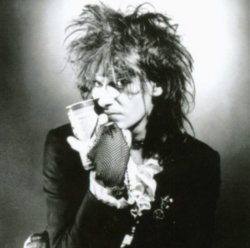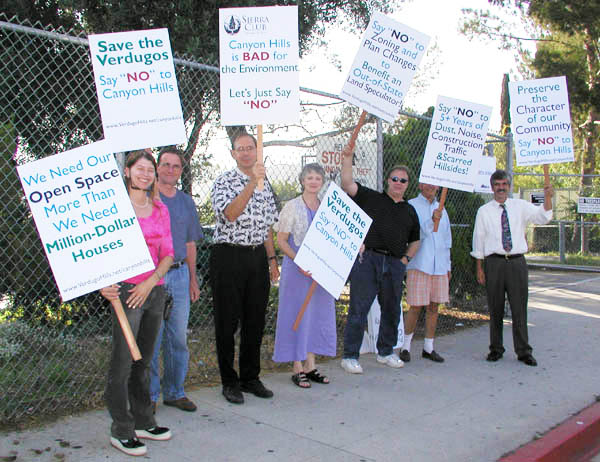Post by Kathy on Apr 16, 2006 8:52:43 GMT -5
From The Boston Globe, Paul mention at the end:
When punks go folk
For some artists, toning it down proves uplifting
By Glenn Yoder, Globe Correspondent | April 14, 2006
Aaron Sinclair is 29 years old and still growing -- at least when it comes to seafood.
''I just started eating fish," says the drummer of frenetic local punk mainstays the Lot Six, placing an order at the Sports Depot in Allston. ''You like scrod?"
The catch of the day isn't the only new item on his plate. Sinclair is also developing a musical appetite for Hank Williams, Bruce Springsteen, and all the folk, country, and Americana he shirked as a ''metalhead" growing up in country-dominated Texas.
Beyond that, the Berklee graduate is embracing his roots as the lead singer, guitarist, and songwriter of the mammoth seven-member Americana collective Frank Smith -- cramming stages with banjos, acoustic guitars, pedal steel, piano, and other instruments to create a sound worlds removed from his punk tendencies.
And the guys playing those instruments? Most are pulled from other hard-edged local rock groups such as Eyes Like Knives, Stray Bullets, and Drexel. None had trouble making the switch to rabble-rouser country-rock, Sinclair said.
''We're all a little bit older, and we've been playing music for so long that even at the time they joined, they listened to all different kinds of music," Sinclair said of his bandmates. ''I don't think they found it a drastic change. And as you get older, your tastes widen."
It's not uncommon for rock artists to lower the decibel level. After all, 1980s heavy metal power ballads were built around the every-bad-boy-has-a-soft-side ethos, and in the 1990s, a mixture of harder post-grunge and college rock yielded the emo genre and its soggy-heart sentiments.
''I think it's only natural, especially if you're playing stuff that's really hard," said Ira Elliot, the Brooklyn-based drummer of alt-rock veterans Nada Surf, in a phone interview. ''[Folk and country music] is really about the song."
But in Boston, a city long-considered a hotbed of working-class punk and hardcore groups, the loud to soft genre swap can create mixed feelings among local punks.
''It's a different dynamic, a different interaction with the crowd, but it's not any more or less sincere," said Micah Blue Smaldone, who knows firsthand what it's like to leave the Boston punk scene. He was, after all, knee deep in it, as a member of the Shods and Out Cold, and Maine political punks the Pinkerton Thugs.
Then, four years ago, he walked out on the scene when he found the blues.
''Heavy depression, withdrawal, things imploding," said Smaldone, 27, slowly listing the factors that led to his discovery of old ragtime and blues. ''Now, this [style] gives me a sense of growth; I can see progress in my life. This has created almost a dialogue with the world and I'm finding a way to articulate my place in it, my loved ones' place in it, my place with my loved ones."
Smaldone began plucking ragtime tunes on Portland, Maine street corners, and earned rave reviews for reviving the sound, including this summation from Magnet Magazine: ''Micah Smaldone should, by the sound of it, be dead." Boston, too, has been receptive to his steely brand of Dust Bowl-era yodeling, even on the heels of his punk past, he said.
''People are always coming out to the shows who knew my old bands, and honestly I don't feel like it's that much of a leap musically," he said. ''I see a common thread in all this music, the same spirit. It's just a different approach, a different era."
Boston crowds are more receptive than they're credited for, said Mark Lind, the 29-year-old frontman of veteran Charlestown punks the Ducky Boys. In 1999, Lind and his brother, Rob, the screeching singer in local punk groups Ramallah and Blood for Blood, teamed up to create a more mainstream rock group: Sinners and Saints. Lind said the crowds only grew bigger, despite the sound's new direction.
''Everybody in Boston, they all seem to be pretty accepting people," he said. ''With most bands, especially bands that have been around for 10 or more years, their audience kind of gets older with them, so they'll continue to accept the music as it is."
Sinclair said playing in bands like Drexel and the Lot Six helped him gain a following for his new project. Thanks to ties forged with clubs while playing in other bands, he said he can book a Frank Smith show at nearly any club in the city. With the release of the group's new album ''Red on White" -- which features a pedal steel-laden cover of Springsteen's ''I'm on Fire" -- Frank Smith is shaking up the local scene, snagging a nod in the Boston Phoenix's 2006 Best Music Poll in the local roots act category.
The truth is, musicians want to stretch their limits, Lind said, citing Paul Westerberg, the leader of one-time punks the Replacements, as an example of an artist who got older and transformed his songs.
''I'm sure [Westerberg] wasn't 18 and intending one day to be playing folk-rock, but it happens," said Lind, who released a solo acoustic album under his own name. ''I think it's mainly because people get older. Eventually, if you really love music, you want to make something presentable you can be proud of. Not that I couldn't be proud of the Ducky Boys, but you want to make something you can show your family."
While American folk, country, and ragtime are often classified as southern influences, Marilyn Rea Beyer, the midday host of the program ''Folk Radio" on WUMB, said a number of factors make Boston's folk and country market one of the ripest in the country, including its surplus of music schools, the intermingling of college students from different areas bringing in various musical tastes, the remnants of Harvard Square's role in the 1960s folk revival, and the city's Celtic roots. It's no wonder punk bands want to experiment in the sounds around them, she said, adding that the mergers of differing musical styles return music to its organic form.
''In the last 25 to 30 years, we've put labels on things, like 'disco,' 'bubblegum,' 'hip-hop' -- titles that marketers have put on people's music," Beyer said. ''The fact of the matter is you can't really categorize a true musician, because someone who can't help but make music wants to make all kinds of music."
When punks go folk
For some artists, toning it down proves uplifting
By Glenn Yoder, Globe Correspondent | April 14, 2006
Aaron Sinclair is 29 years old and still growing -- at least when it comes to seafood.
''I just started eating fish," says the drummer of frenetic local punk mainstays the Lot Six, placing an order at the Sports Depot in Allston. ''You like scrod?"
The catch of the day isn't the only new item on his plate. Sinclair is also developing a musical appetite for Hank Williams, Bruce Springsteen, and all the folk, country, and Americana he shirked as a ''metalhead" growing up in country-dominated Texas.
Beyond that, the Berklee graduate is embracing his roots as the lead singer, guitarist, and songwriter of the mammoth seven-member Americana collective Frank Smith -- cramming stages with banjos, acoustic guitars, pedal steel, piano, and other instruments to create a sound worlds removed from his punk tendencies.
And the guys playing those instruments? Most are pulled from other hard-edged local rock groups such as Eyes Like Knives, Stray Bullets, and Drexel. None had trouble making the switch to rabble-rouser country-rock, Sinclair said.
''We're all a little bit older, and we've been playing music for so long that even at the time they joined, they listened to all different kinds of music," Sinclair said of his bandmates. ''I don't think they found it a drastic change. And as you get older, your tastes widen."
It's not uncommon for rock artists to lower the decibel level. After all, 1980s heavy metal power ballads were built around the every-bad-boy-has-a-soft-side ethos, and in the 1990s, a mixture of harder post-grunge and college rock yielded the emo genre and its soggy-heart sentiments.
''I think it's only natural, especially if you're playing stuff that's really hard," said Ira Elliot, the Brooklyn-based drummer of alt-rock veterans Nada Surf, in a phone interview. ''[Folk and country music] is really about the song."
But in Boston, a city long-considered a hotbed of working-class punk and hardcore groups, the loud to soft genre swap can create mixed feelings among local punks.
''It's a different dynamic, a different interaction with the crowd, but it's not any more or less sincere," said Micah Blue Smaldone, who knows firsthand what it's like to leave the Boston punk scene. He was, after all, knee deep in it, as a member of the Shods and Out Cold, and Maine political punks the Pinkerton Thugs.
Then, four years ago, he walked out on the scene when he found the blues.
''Heavy depression, withdrawal, things imploding," said Smaldone, 27, slowly listing the factors that led to his discovery of old ragtime and blues. ''Now, this [style] gives me a sense of growth; I can see progress in my life. This has created almost a dialogue with the world and I'm finding a way to articulate my place in it, my loved ones' place in it, my place with my loved ones."
Smaldone began plucking ragtime tunes on Portland, Maine street corners, and earned rave reviews for reviving the sound, including this summation from Magnet Magazine: ''Micah Smaldone should, by the sound of it, be dead." Boston, too, has been receptive to his steely brand of Dust Bowl-era yodeling, even on the heels of his punk past, he said.
''People are always coming out to the shows who knew my old bands, and honestly I don't feel like it's that much of a leap musically," he said. ''I see a common thread in all this music, the same spirit. It's just a different approach, a different era."
Boston crowds are more receptive than they're credited for, said Mark Lind, the 29-year-old frontman of veteran Charlestown punks the Ducky Boys. In 1999, Lind and his brother, Rob, the screeching singer in local punk groups Ramallah and Blood for Blood, teamed up to create a more mainstream rock group: Sinners and Saints. Lind said the crowds only grew bigger, despite the sound's new direction.
''Everybody in Boston, they all seem to be pretty accepting people," he said. ''With most bands, especially bands that have been around for 10 or more years, their audience kind of gets older with them, so they'll continue to accept the music as it is."
Sinclair said playing in bands like Drexel and the Lot Six helped him gain a following for his new project. Thanks to ties forged with clubs while playing in other bands, he said he can book a Frank Smith show at nearly any club in the city. With the release of the group's new album ''Red on White" -- which features a pedal steel-laden cover of Springsteen's ''I'm on Fire" -- Frank Smith is shaking up the local scene, snagging a nod in the Boston Phoenix's 2006 Best Music Poll in the local roots act category.
The truth is, musicians want to stretch their limits, Lind said, citing Paul Westerberg, the leader of one-time punks the Replacements, as an example of an artist who got older and transformed his songs.
''I'm sure [Westerberg] wasn't 18 and intending one day to be playing folk-rock, but it happens," said Lind, who released a solo acoustic album under his own name. ''I think it's mainly because people get older. Eventually, if you really love music, you want to make something presentable you can be proud of. Not that I couldn't be proud of the Ducky Boys, but you want to make something you can show your family."
While American folk, country, and ragtime are often classified as southern influences, Marilyn Rea Beyer, the midday host of the program ''Folk Radio" on WUMB, said a number of factors make Boston's folk and country market one of the ripest in the country, including its surplus of music schools, the intermingling of college students from different areas bringing in various musical tastes, the remnants of Harvard Square's role in the 1960s folk revival, and the city's Celtic roots. It's no wonder punk bands want to experiment in the sounds around them, she said, adding that the mergers of differing musical styles return music to its organic form.
''In the last 25 to 30 years, we've put labels on things, like 'disco,' 'bubblegum,' 'hip-hop' -- titles that marketers have put on people's music," Beyer said. ''The fact of the matter is you can't really categorize a true musician, because someone who can't help but make music wants to make all kinds of music."





